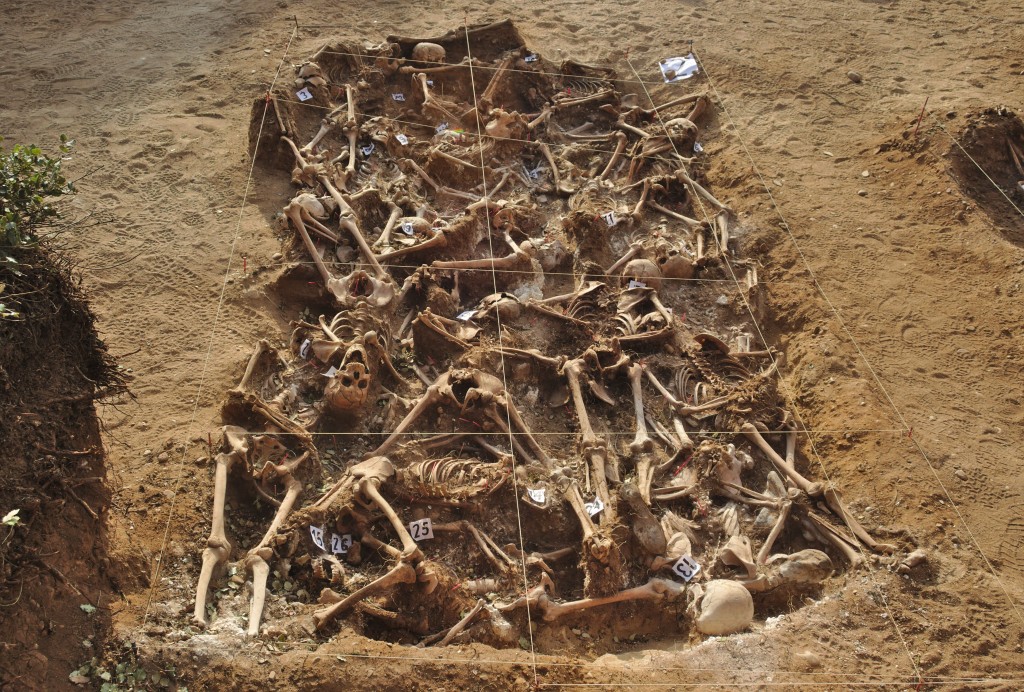Spain’s Cabinet Approves New Memory Law

One of the mass graves discovered in an excavation from July–August of 2014 at Estépar (Burgos). The grave contains twenty-six republicans who were killed by nationalists in August-September 1936. Photo Mario Modesto Mata. CC BY-SA 4.0.
In September, the cabinet of Pedro Sánchez, Spain’s Socialist Prime Minister, approved the draft for a new Law of Democratic Memory that seeks to go farther than existing legislation, which dates from 2007, in settling the unfinished business of the transition to democracy. The new law would provide material and symbolic reparations for victims of state violence and theft; annul judicial sentences from sham courts designed to eliminate Franco’s political dissidents; reform the history curriculum in public education; limit freedom of speech for anti-democratic ideologies; and remove or prohibit public tributes to the dictatorship. (In October, the Spanish far-right Vox and center-right Partido Popular attempted to leverage the 2007 law in order to remove a plaque in Madrid dedicated to Francisco Largo Caballero, who served as Prime Minister of the Spanish Republic during the war.)
Although details remain vague, the consequences of the law could be far-reaching. In addition to acknowledging that the state is responsible for locating and exhuming the tens of thousands of mass graves dating from the civil war and the dictatorship—a task that, until now, has been undertaken by families and volunteers—the law calls for an inventory of illicit transfers of property and wealth during the years of the Franco regime. It also seeks to issue some reparation to the thousands of Spaniards whose paid “penitence” for their political “sins” in forced-labor camps.












